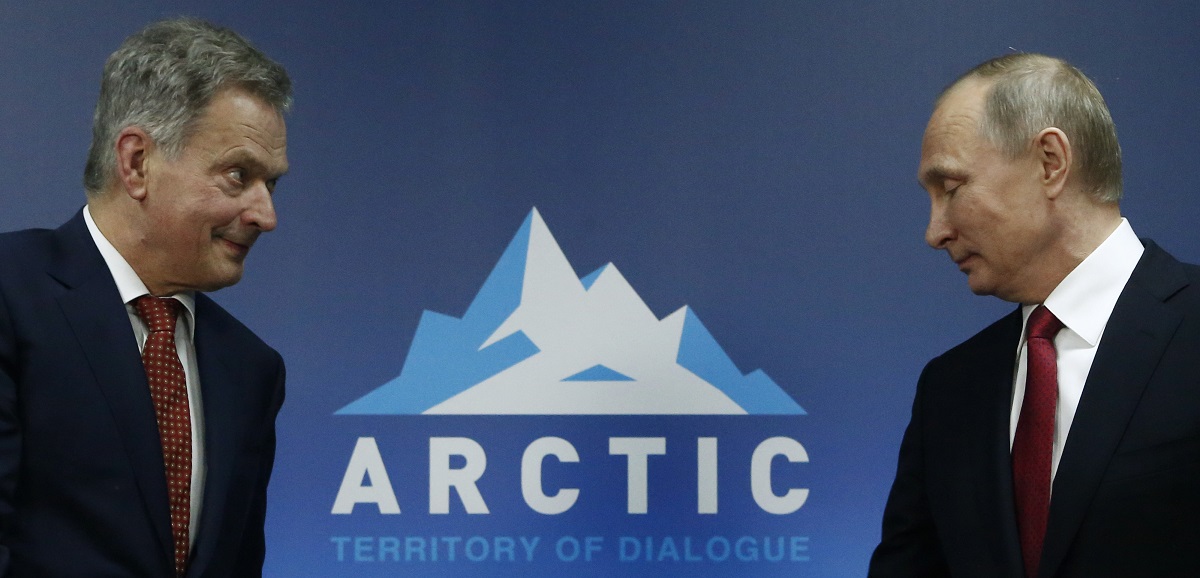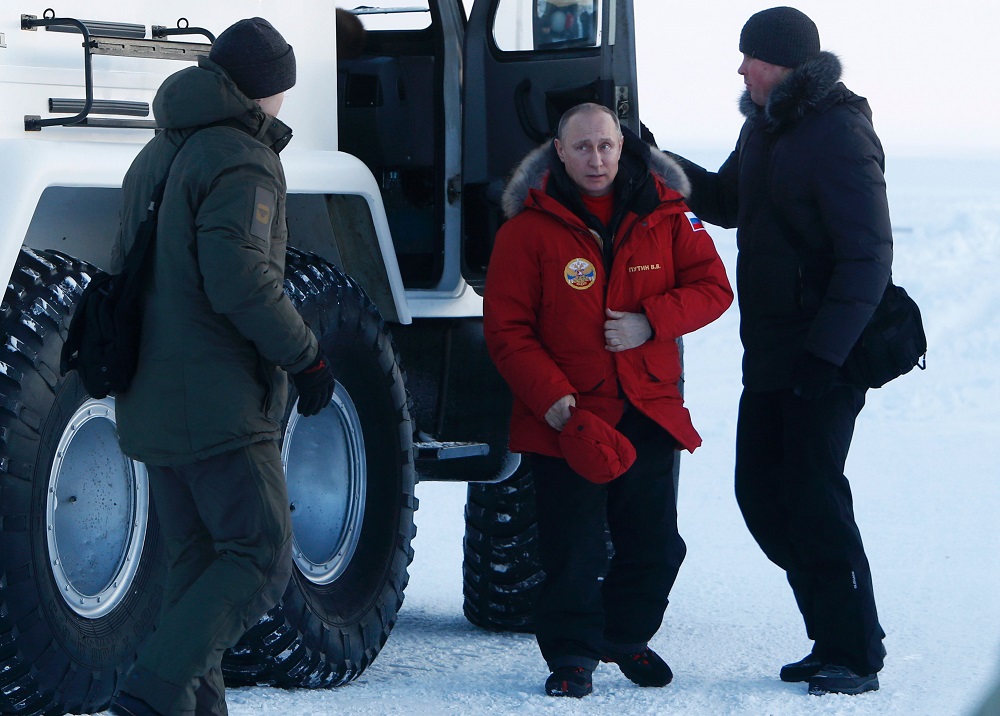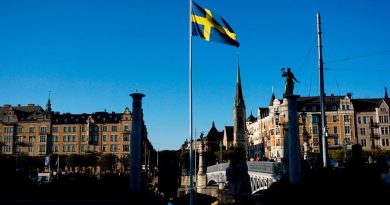Blog: Cooperation with Russia in the Arctic makes sense; an Arctic Summit does not

Last week, Russia hosted a high profile conference on Arctic development and cooperation which boasted the attendance of 2400 or so politicians, business representatives, academics and journalists, including the Finnish and Icelandic Presidents, the Norwegian Foreign Minister, and Vladmir Putin himself.
It was on the same scale as the GLACIER conference hosted by Barack Obama in Alaska in August 2015, and provided the opportunity for all involved to reaffirm a commitment to peace and stability in the Arctic region even as tensions flare elsewhere in the world.
Events such as these, and cooperation in the Arctic in general, pose a dilemma for Western politicians. They cannot be seen to be too close, or too trusting, of Russia. Using a classic realpolitik lens, Russia is the West’s biggest threat: to democracy, to stability, and to human rights. Putin is an autocrat, known to use violence to silence and eliminate his opposition. Under his direction, Russia has been actively undermining the democratic processes of the United States and France, and has spread allegations about the Canadian Foreign Minister’s grandfather’s ties to the Nazis. The same week as Putin received President Niniistö and President Jóhannesson, anti-corruption protests in Moscow were being violently suppressed. The West continues to impose sanctions against Russia for its annexation and continued occupation of Crimea, and is at odds with Russia over how to address the crisis in Syria.
There is a large audience in Canada, as in the United States and parts of the Nordic region, that sees Russia as an aggressor, and Putin as untrustworthy, and considers it naïve to attempt to work with the Russian state in any capacity, including and perhaps especially in the Arctic. To skeptics, it is akin to the proverbial frog carrying the scorpion; even if cooperation can be logically argued to be mutually beneficial, Russia’s nature will ensure that it is prologue to disappointment or worse.
Despite such apprehensions – and to be clear these are expressed similarly on the Russian side – cooperation has been sustained and even celebrated in the Arctic. How do we account for this?
To Russia with Love
The fact is, Russia has been a constructive partner in the Arctic. In the past month alone, there have been multilateral meetings to establish a regime to regulate fisheries in the Central Arctic Ocean and to develop protocols for emergency marine response and combined operations via the Arctic Coast Guard Forum. The Arctic Council Ministerial in Fairbanks next month will see the signing of an Agreement on enhancing Arctic scientific cooperation. Russian participation is integral to all of these initiatives.
Indeed, it is often argued that Arctic cooperation without Russia would be redundant. Russia represents over half of the region’s territory, is home to two thirds of its population, and produces 70% of its economic output. It would make little sense to attempt to regulate shipping, manage fisheries, mitigate short-lived climate pollutants, or understand the effects of climate change in the region without Russian involvement. Inasmuch as the international community’s interests in the Arctic are environmental and economic – domains concerned with absolute, rather than relative gains – it would also be self-defeating.
Cutting off your nose to spite your face

Westerners often conceive of Russia as Putin’s Russia, and the connotations are mostly negative. But many of those who research Arctic issues or work in a multilateral context have developed close professional relationships with Russian scientists, diplomats, community leaders, and Arctic residents. At that level, it is easy to recognize the commonly held values, challenges, and interests we share. It is also clear that shunning cooperation with Russia in the Arctic would impact, first and foremost, the residents of the Russian North, including Indigenous or small numbered peoples who have developed important political influence and communications channels as a result of their participation in organizations such as the Arctic Council.
If it is unclear what benefits would be gained by reducing ties to Russia in the Arctic, the downsides are obvious: it would be impossible to effectively protect the Arctic ecosystem as a whole; the development and dissemination of scientific research to inform policy would occur much more slowly; the leveraging of transportation and civil infrastructure would be disrupted; an economy of scale for Arctic-specific technological solutions would be lost; and regional economic and cultural ties would diminish. Importantly, it would also compromise security in the region, weakening diplomatic channels, confidence-building measures, and interdependence. For these reasons, the governments of the Arctic states have been consistent in their support for the principle of compartmentalization in Arctic affairs, even as the armchair critics bluster.
An Arctic Summit Circus
Arguing that cooperation with Russia in the Arctic is worth sustaining is not the same as saying that any cooperation with Russia is worthwhile. But in Arkhangelsk last week, as part of his official remarks, President Niniistö suggested as much with his proposal to host an Arctic Summit for the Arctic’s political leaders, including Donald Trump and Vladimir Putin.
Finland has floated the idea of such a Summit for years – at least as long ago as 2010. But after meeting with Barack Obama in May 2016, Niniistö seemed to abandon such plans, calling the timing “inappropriate” given the international political situation. That was short-lived. Niniistö once again revived the idea in his first telephone call with now President Trump, in December 2016.
It is bewildering how the current state of affairs could be considered more appropriate than they were a year ago. Niniistö may not have noticed, but the Trump Presidency is in crisis, a political dumpster fire, not least because it is under investigation for inappropriate ties to Russia during its 2016 Presidential campaign. Any meeting of Trump and Putin under the current political climate would be a circus.
Finland has not put forward any convincing reasons to host such a Summit beyond the boilerplate “take Arctic cooperation to a new level” and “discuss a wide range of issues pertaining to the region and beyond”. The biannual Arctic Council Ministerial, which will take place next month, already provides a regular platform to address high level Arctic issues amongst the Arctic states’ Foreign Ministers. The Trump Administration has proffered no position on Arctic affairs except, tangentially, to cast doubt on the anthropogenic contributions to climate change; it is hard to imagine more sophisticated or constructive discussions arising from an Arctic Summit.
If it’s not broke, don’t fix it
Compartmentalization has been a guiding principle in regional Arctic politics for more than a decade. At its essence, it is about keeping efforts to improve environmental protection and sustainable development in the Arctic – objectives that have near universal support, within and outside the Arctic – insulated from the destabilising fluctuations that occur within the broader international system. Under this principle, cooperation with Russia is rational and necessary.
Inviting Trump and Putin together for an Arctic Summit flagrantly violates this strategy. Instead, it invites drama and uncertainty into Arctic politics at a time when multilateral efforts are progressing quite smoothly; an all-risk-and-no-reward scenario. This is not the Arctic way. Cooperation with Russia in the Arctic must continue. But the proposal for an Arctic Summit should be shelved.
Related stories from around the North:
Canada: Canada’s foreign affairs minister looks to thaw relations with Russia at Arctic summit, Radio Canada International
Denmark: Nordics to step up security cooperation on perceived Russian threat, Yle News
Finland: Niinistö plays down possible Trump-Putin meeting in Finland, Yle News
Iceland: The Arctic Council at 20 – View from Iceland, Eye on the Arctic
Norway: Norway and Russia exchange diplomatic smiles about Arctic cooperation, The Independent Barents Observer
Russia: International Arctic Forum kicks off in Arkhangelsk, Radio Canada International
Sweden: Swedish foreign minister to meet Russian counterpart, Radio Sweden
United States: Arctic Council – Business as usual with USA under Trump?, blog by Irene Quaile, Deutsche Welle



